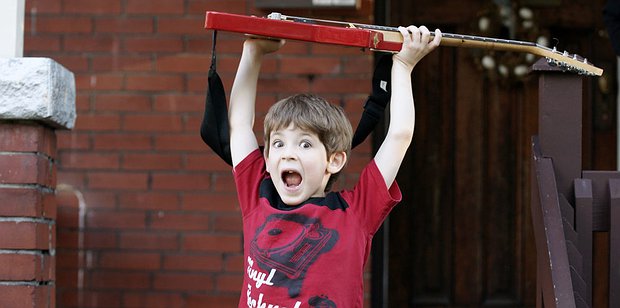Tips on Signing Up Your Child for Music Lessons: Part One
categories

Do your little ones love music? Do they sing along or dance or clap or stomp to music when they hear it? If so, then it's a great idea to sign them up for music lessons. We have already discussed the numerous benefits learning music has on people both young and old. Improved academic performance, improved hand-eye-coordination, and building self-esteem are all fantastic benefits that you don't want your child to miss out on. Here are some important tips and factors to consider when signing up your child for music lessons for the first time:
Choose an Appropriate Age to Start Lessons
This can be tricky since every child is unique making each situation different from child to child. Some children are more mature than others and have larger attention spans. The child's size also plays a factor. Some children are smaller than others and this can cause physical challenges depending on the instrument that is chosen. Choosing when to start music lessons in a child's life is one of the most important decisions you can make when signing your child up for music lessons. You don't want your child to have a bad experience at the start of their musical journey. The last thing you want to do is discourage your child from learning. The best thing you can do is to find a music program that appeals to your child's interests and one that is age appropriate. If your child shows no interest in music then it's a good idea to stay away from music lessons until they do show an interest. Signing up a child who has no interest in music can be disastrous. Forcing anything upon a child is a bad idea.
One thing to keep in mind is the younger a child starts their music lessons the more of a head start they will have. It takes many years to excel in music so if your child starts music lessons at a young age they will be ahead of those that start at an older age. Another factor to consider is participation. Does your child sing when they hear music? Do they clap along to the beat of the music or stomp their feet? Maybe they dance to the music? If any of these things occur then that is a good indication that your child is ready to start music lessons. There are group music classes for really young children starting at the age of two and going to about the age of six. For private lessons, it's a good idea to start at the age of four, five or six years old. At these ages, children can usually focus for a good thirty minutes.
Choose the Right Instrument
The best thing to do is to try and find an instrument that is appropriate for your child's age and interest.
For instance, if a child likes the sound of a wind instrument then starting them on the recorder is a great choice. The recorder is small and fairly easy to learn making it a great starting instrument. If your child is more interested in stringed instruments then the violin or ukulele are great choices since they come in small sizes and are appropriate for beginners. If your child is interested in percussion then choosing the piano, drum set, xylophone, metalophone, glockenspiel or handheld percussion instruments are an excellent place to begin. I recommend doing a combination of percussion (both pitched and non-pitched) with the piano. This combination of instruments really compliments each other. Young students do well with variety.
Choose the Right Music School
Choosing the right music school is probably the most important decision a parent can make for their child. The teachers are what make a music school great. Look for music schools that have qualified teachers and not uneducated instructors. A qualified teacher who has at least one degree in music, education, or the arts is usually a safe bet. Stay away from music schools that do not list or promote their teachers. Chances are they employ uneducated instructors or the music school has a high turn over rate with their teachers because they pay them poorly.
To be continued...
